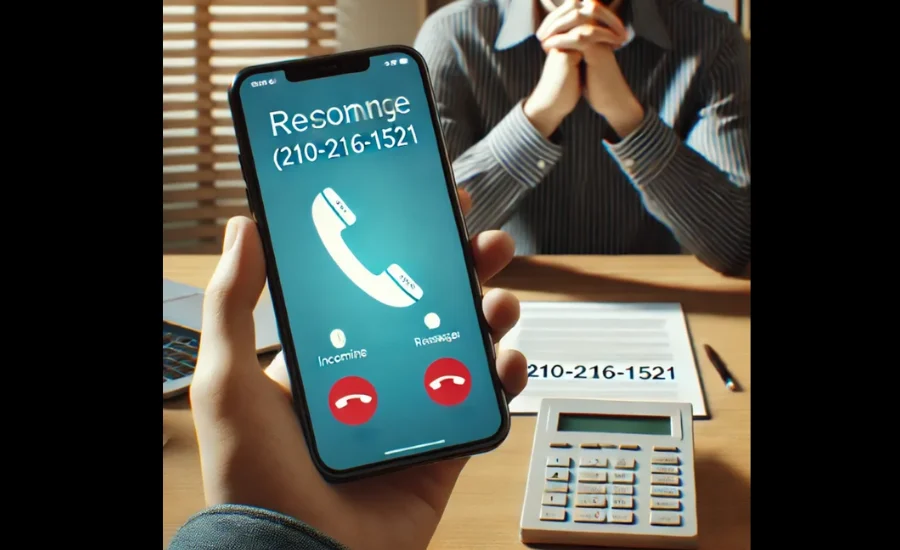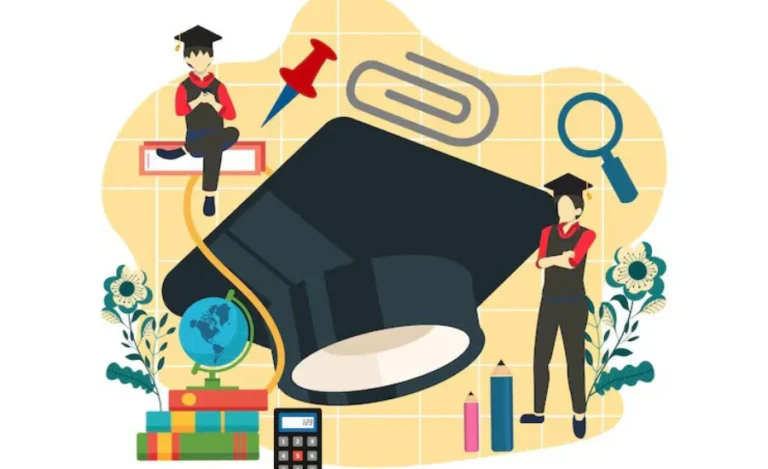Navigating the 210-216-1521 Scam: What You Need to Know
If you’ve found yourself receiving a suspicious call from 210-216-1521, you’re definitely not alone! This number has gained a reputation for being associated with various scams, leaving many on high alert. However, there’s no need to panic—we’re here to guide you through the details of this troubling phenomenon. In this comprehensive guide, we’ll break down the essence of the 210-216-1521 scam, highlighting the common tactics employed by these scammers and providing you with practical strategies to safeguard yourself. Our aim is to make this information not only informative but also enjoyable, because protecting yourself shouldn’t feel like a chore. Armed with the right knowledge, you’ll be equipped to outsmart these scammers and restore your peace of mind!
Understanding the 210-216-1521 Scam
The 210-216-1521 scam represents a frustrating wave of robocalls that masquerade as trustworthy entities—often claiming to be legitimate businesses, government representatives, or tech support agents. However, the reality is far less benign; these calls are designed to extract your personal information. Using tactics that may instill fear—like claiming you owe money—or presenting enticing offers that seem too good to be true, these scammers rely on deception to manipulate their targets. Staying informed about these tactics is crucial for protecting yourself from such intrusive schemes.
Recognizing the Tactics of the 210-216-1521 Scam
These scammers are clever, but we’re equipped to counter their tricks. The 210-216-1521 scam typically unfolds in several stages:
The Initial Call: It begins innocuously enough with a call from a seemingly normal number, but don’t be fooled; it’s anything but ordinary.
Impersonation: Scammers often present themselves as representatives from familiar organizations—like your bank, the IRS, or tech support—trying to create a facade of legitimacy.
Creating Urgency: This is where they really crank up the pressure. You might hear claims that your account has been compromised or that you owe a fine. Here’s the truth: you don’t.
Information Requests: Finally, they will ask for sensitive personal information or even demand payment through gift cards. This should raise immediate red flags!
Identifying Scam Call Red Flags
So, how can you distinguish between a legitimate call and a scam? Here are key indicators to watch for:
Unexpected Calls: If you didn’t anticipate the call, approach it with caution.
Requests for Personal Information: Reputable organizations will never ask for sensitive information over the phone.
Urgent Demands and Threats: If the caller pressures you to act quickly, it’s likely a scam.
Unrealistic Offers: Be wary of offers that seem too good to be true, like free vacations or lottery winnings for contests you never entered.
By staying vigilant and recognizing these warning signs, you can effectively protect yourself against scammers.
Simple Strategies to Protect Yourself from Scams

Safeguarding yourself against scams like the one from 210-216-1521 is more manageable than you might think. Here are some practical tips to keep you secure:
Leverage Call-Blocking Technology: Consider using call-blocking apps such as Hiya or Truecaller. These tools can help filter out and block known scam numbers, providing you with an added layer of protection.
Keep Personal Information Private: Avoid sharing sensitive details over the phone. Legitimate organizations will typically follow up with official correspondence through email or traditional mail if the matter is urgent.
Trust Your Instincts: If a call feels suspicious or too good to be true, listen to your intuition. A healthy skepticism can go a long way in keeping you safe.
Stay Informed: Educate yourself about common scam techniques and tactics. By understanding how scammers operate, you can better protect yourself and stay one step ahead of potential threats.
By putting these simple methods into practice, you may lower your risk of being a victim of fraud and keep your peace of mind.
Common Scams Associated with 210-216-1521
Scammers employ various tactics to mislead their victims, particularly through calls from numbers like 210-216-1521. Understanding these methods can help you recognize and avoid potential traps.
Government Impersonation: Many scammers impersonate representatives from government agencies such as the IRS or the Social Security Administration. They often claim that you owe unpaid taxes or that there are urgent legal issues requiring immediate action, aiming to instill fear and urgency.
Tech Support Fraud: Another prevalent tactic involves calling individuals while pretending to be tech support agents from well-known companies like Microsoft or Apple. These callers may assert that your computer has a virus, pressuring you to grant them remote access to “resolve” the issue.
Lottery and Prize Scams: Scammers frequently claim that you’ve won a large sum of money or a valuable prize, but they often require an upfront fee for you to claim your winnings. This classic ploy is designed to trick people into relinquishing their funds.
Debt Collection Scams: In some cases, callers may pose as debt collectors, insisting that you owe money for a debt you likely never incurred. They often resort to threats of legal action to coerce individuals into making payments.
Phishing Attempts: Many scammers also seek to extract sensitive personal information, such as Social Security numbers or bank account details. This information can be used for identity theft or other forms of financial fraud, making it crucial to stay vigilant.
By being aware of these common tactics, you can better protect yourself from falling victim to scams linked to 210-216-1521 and similar numbers.
Why Scam Calls Can Be Convincing
Scammers have refined their techniques to ensure their calls appear credible, which can easily mislead unsuspecting individuals. Understanding why these calls are so persuasive is essential for protecting yourself.
Impersonating Authority Figures: Scammers often pose as representatives from government agencies or well-known corporations, leveraging the trust associated with these entities. By doing so, they instill a sense of urgency and authority, making it challenging for individuals to dismiss their claims.
Using Personal Information: In some instances, scammers have access to personal information about their targets—often acquired through data breaches or social engineering tactics. This knowledge allows them to tailor their messages, making their requests appear more legitimate and difficult to challenge.
Creating a Sense of Urgency: A common tactic among scammers is to induce fear and urgency. By insisting that immediate action is required to avoid severe consequences, they pressure individuals into making hasty decisions without fully considering the ramifications.
Knowing these strategies will provide you the knowledge needed to identify and prevent such scams. The best line of defense against these ever more cunning strategies is to remain aware and careful.
Understand Your Rights Against Scammers

If you’ve encountered scams linked to the number 210-216-1521 or any similar calls, it’s crucial to equip yourself with knowledge about your rights and the legal avenues available for recourse. Navigating the aftermath of such encounters can be daunting, but being informed empowers you to take action and safeguard your personal information.
Consumer Protection Regulations
Consumer protection laws exist to preserve citizens from fraudulent practices and deceptive methods performed by scammers. The Telephone Consumer Protection Act (TCPA) is one of these laws that is very important. The TCPA was passed in order to restrict unwanted telemarketing calls. It imposes stringent regulations on telemarketers, such as forbidding the use of automated dialing systems without prior authorization. This implies that you have the right to report a robocall that you hear from an unknown number in addition to choosing to ignore it.
Additionally, various state-specific consumer protection laws offer further safeguards. Many states have enacted their own legislation to combat scams and fraudulent activities. Understanding the laws applicable in your state can provide an extra layer of protection.
Reporting Fraudulent Activity
If you believe you’ve been targeted by a scam, it’s imperative to report the activity. While notifying the Federal Trade Commission (FTC) is a vital step, you should also consider reaching out to your local attorney general’s office and relevant law enforcement agencies. These organizations play a critical role in investigating scams and can take action against perpetrators.
When reporting, keep a detailed record of every interaction with the scammers, including dates, times, and the content of conversations. This documentation can serve as invaluable evidence during investigations and any potential legal proceedings. Many victims overlook the importance of this step, but thorough records can significantly strengthen your case against the scammers.
Taking Preventive Measures
It’s critical to take preventative action to safeguard your identity and financial security if you’ve given criminals access to personal information. One of the best strategies is to put a freeze on credit. By limiting access to your credit record, a credit freeze makes it more difficult for identity thieves to open accounts in your name. It can be lifted when you need to apply for fresh credit, and it has no effect on your credit score.
Additionally, placing fraud alerts on your accounts is advisable. A fraud alert notifies creditors to take extra precautions when verifying your identity before extending credit. This simple step can deter scammers and provide you with peace of mind.
Furthermore, consider regularly monitoring your credit reports for any suspicious activity. Under federal law, you’re entitled to one free credit report each year from each of the three major credit bureaus (Equifax, Experian, and TransUnion). Taking advantage of this can help you catch any signs of identity theft early on.
Stay Informed and Empowered:
Understanding your rights and the preventive measures available to you is vital in today’s digital landscape. Scammers are constantly evolving their tactics, but by staying informed, you can protect yourself and your personal information.
Learn about typical scam techniques and be wary of unwanted calls, particularly those requesting quick action. Follow your gut; if something doesn’t feel right, it probably is. You may effectively protect yourself from scams and make sure that you’re not simply a victim but an informed person prepared to fight back by adopting these preventative measures. Recall that your strongest line of defense against fraud is knowledge.
Disturbing Experiences with 210-216-1521 Calls
Many individuals have reported unsettling encounters with calls from the number 210-216-1521, shedding light on the diverse tactics scammers employ. Here are some notable cases that illustrate the dangers associated with this number.
Tax Scam Incident: A scary phone call was placed to Sarah by someone posing as an IRS agent. The caller told her that she had a sizable back tax debt and threatened to take her to court if she didn’t pay right away. Alarmed by the seriousness of the situation, Sarah felt pressured. But she soon discovered, after looking into it, that the call was a hoax meant to frighten and defraud gullible people of their money.
Tech Support Deception: John’s experience with the same number was equally troubling. He received a call from someone pretending to be from a reputable tech support company. The caller claimed that John’s computer was infected with malware and required immediate remote access to resolve the issue. Almost convinced by the caller’s convincing tone, John was just about to grant access to his laptop when he paused and recognized the warning signs of a scam. His quick thinking saved him from a potential breach of his personal data.
Prize Fraud Scheme: In another case, Lisa received an unexpected call informing her that she had won a cash prize in a contest she had never entered. The caller from 210-216-1521 asked her for her banking details to facilitate the deposit of her supposed winnings. Recognizing the red flags, Lisa refrained from providing any personal information and later confirmed that it was an attempt to steal her financial data.
These incidents demonstrate the dishonest tactics used by con artists, underscoring the need of people being watchful and aware of the dangers. When someone calls you from 210-216-1521 or a similar number, follow your gut and make sure they are legitimate before giving out any personal information.
The Rise of Robocalls: Understanding and Combatting Them

Many individuals receive repeated calls from numbers like 210-216-1521 due to the widespread use of robocalls and auto-dialers. These automated systems dial multiple phone numbers simultaneously, connecting the recipient to a live agent or a pre-recorded message upon answering.
Why Robocalls Are Prevalent: Robocalls have gained popularity as they enable businesses—and unfortunately, scammers—to contact a vast audience rapidly. While legitimate companies may use robocalls for marketing purposes or appointment reminders, the landscape is also rife with deceptive practices. Scam calls often disguise themselves as robocalls, attempting to trick unsuspecting individuals into providing personal information or financial details.
Protecting Yourself Against Robocalls: To mitigate the annoyance of robocalls, consider utilizing call-blocking apps and services designed to filter out suspicious numbers. Many mobile carriers also provide free or affordable options to help users stop unwanted calls from reaching their devices. By taking proactive measures, you can significantly reduce the likelihood of falling victim to these intrusive communications and protect your personal information.
Also Read: 315-442-5267
Final Words
Have you received a call from 210-216-1521? If so, you’re not alone! This number has gained notoriety for its association with various scams, leaving many people feeling alarmed and confused. Scammers often impersonate trusted organizations, such as government agencies or tech support, creating a false sense of urgency to extract personal information or money. They might threaten legal action for unpaid taxes or claim your computer is infected with malware.
To protect yourself, it’s crucial to remain vigilant. If you receive a call from 210-216-1521 or a similar number, don’t share any personal details or financial information. Instead, hang up and verify the legitimacy of the call through official channels. Consider using call-blocking apps to minimize unwanted interruptions. By staying informed and cautious, you can outsmart these scammers and safeguard your personal information. Remember, awareness is your best defense against these deceptive practices!
For More Information Check it Out: Blog Blower





